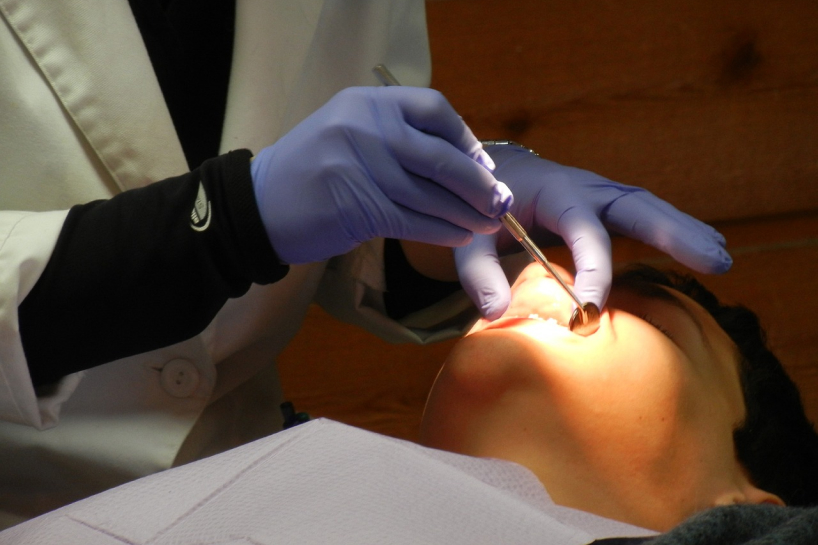Managing oral health is crucial for everyone, but it requires extra care for individuals with diabetes. Diabetes affects the body’s ability to process sugar, leading to various health complications, including those affecting oral health. When it comes to complex dental procedures like root canal surgery, specialized considerations must be taken into account to ensure the safety and efficacy of the treatment for diabetic patients.
At Fifth Avenue Endodontics, under the expert guidance of Dr. Iofin, we prioritize the unique needs of diabetic patients undergoing Manhattan root canal therapy. Our approach involves a thorough understanding of how diabetes impacts oral health, meticulous planning, and customized care protocols to address these challenges effectively.
Diabetic patients are more susceptible to infections, have delayed healing, and often suffer from dry mouth, increasing the risk of cavities and gum disease. These factors necessitate a tailored approach to root canal surgery, ensuring that every step, from pre-surgery preparation to post-surgery care, is optimized for the patient’s specific needs.
This blog post will delve into the special considerations and care needed for diabetic patients during root canal surgery, highlighting the expertise and advanced techniques employed by Fifth Avenue Endodontics to provide safe and effective treatment.
Understanding Diabetes and Oral Health
Diabetes is a metabolic disorder that significantly impacts the body’s ability to process sugar, leading to chronically high blood sugar levels. This chronic condition not only affects overall health but also has several critical implications for oral health. Understanding these implications is vital for managing the dental care of diabetic patients, especially when they undergo complex procedures like root canal surgery.
Increased Risk of Infection
One of the most significant oral health challenges for diabetic patients is an increased susceptibility to infections. High blood sugar levels can impair the body’s immune response, making it harder to fight off bacterial infections. This heightened risk includes periodontal disease, a severe gum infection that can damage soft tissue and destroy the bone supporting teeth. Additionally, diabetic patients are more prone to developing dental abscesses, painful infections at the root of a tooth or between the gum and a tooth. These infections require prompt and effective treatment to prevent further complications, making proactive infection control measures essential during any dental procedure.
Delayed Healing
Another critical concern for diabetic patients is delayed wound healing. Elevated blood sugar levels can impair the body’s natural healing processes, making recovery from dental procedures slower and more complicated. This delay in healing can increase the risk of post-operative complications, such as infection at the surgical site. Therefore, diabetic patients need to maintain optimal blood sugar control before, during, and after dental procedures to promote faster and more effective healing. Monitoring blood sugar levels and adjusting diabetes management plans in consultation with healthcare providers is crucial for minimizing healing delays.
Dry Mouth
Diabetes can also lead to xerostomia, commonly known as dry mouth, due to reduced saliva production. Saliva plays a critical role in maintaining oral health by neutralizing acids produced by bacteria, washing away food particles, and providing disease-fighting substances throughout the mouth. A lack of sufficient saliva increases the risk of developing cavities and gum disease. Dry mouth can also make it difficult to wear dentures and can lead to discomfort and difficulties in speaking and swallowing. Managing dry mouth involves staying hydrated, using saliva substitutes, and practicing good oral hygiene to mitigate these risks.
Given these factors, it is essential to approach root canal surgery for diabetic patients with an informed and cautious strategy. This approach involves comprehensive pre-surgical planning, meticulous attention to detail during the procedure, and vigilant post-operative care. At Fifth Avenue Endodontics, Dr. Iofin and his team are well-versed in the unique challenges posed by diabetes and are committed to providing personalized care that addresses these specific needs. By doing so, they ensure that diabetic patients receive the highest standard of care and achieve the best possible outcomes from their Manhattan root canal therapy.

Pre-Surgery Considerations
Before undergoing Manhattan root canal therapy, diabetic patients should work closely with both their endodontist and primary care physician to ensure optimal health management. Comprehensive planning and a thorough understanding of the patient’s medical background are essential to minimize risks and enhance the success of the procedure. Here are some critical pre-surgery considerations:
Blood Sugar Control
Maintaining stable blood sugar levels is crucial for diabetic patients undergoing any dental procedure, especially complex ones like root canal therapy. Uncontrolled diabetes can complicate both the procedure and the recovery process, increasing the risk of infections and delayed healing. To minimize these risks, patients should aim to keep their HbA1c levels within a target range as recommended by their healthcare provider. HbA1c is a measure of average blood sugar levels over the past two to three months and is a critical indicator of diabetes control.
Patients are advised to monitor their blood glucose levels closely in the days leading up to the surgery and to follow their prescribed diabetes management plan rigorously. This might include adjusting their diet, medication, or insulin regimen under the guidance of their primary care physician. Effective blood sugar control can significantly reduce the likelihood of complications during and after the procedure, leading to a smoother recovery.
Comprehensive Medical History
Providing a detailed medical history is vital for tailoring the treatment plan to the individual needs of the patient. This includes disclosing current medications, the duration of diabetes, and any complications such as neuropathy (nerve damage) or cardiovascular issues. Certain medications can interact with anesthetics or antibiotics used during the procedure, so it’s essential for the endodontist to be fully aware of all medications being taken.
Moreover, understanding the duration and severity of the patient’s diabetes helps the endodontist assess potential risks and customize the surgical approach. For example, patients with long-standing diabetes or those with complications like kidney disease may require special considerations. This comprehensive medical history enables the endodontist to take necessary precautions and adapt the treatment plan to ensure the patient’s safety and the procedure’s success.
Antibiotic Prophylaxis
In some cases, prophylactic antibiotics may be recommended to prevent infection, especially for patients with poorly controlled diabetes or a history of infections. Diabetic patients are at a higher risk of developing infections due to their compromised immune response. Prophylactic antibiotics can help mitigate this risk by preventing bacterial infections that might occur during the surgical procedure.
The decision to use antibiotics prophylactically will depend on the patient’s overall health, diabetes control, and the complexity of the root canal surgery. The endodontist, in collaboration with the patient’s primary care physician, will evaluate the need for antibiotics and prescribe the appropriate type and dosage. It’s essential for patients to follow the antibiotic regimen precisely as prescribed to maximize its effectiveness and reduce the risk of infection.
Coordination with Healthcare Providers
Effective communication and coordination between the endodontist and the patient’s primary care physician are crucial. This collaborative approach ensures that all aspects of the patient’s health are considered when planning the root canal therapy. The primary care physician can provide valuable insights into the patient’s diabetes management and help adjust medications or treatments to optimize blood sugar control during the perioperative period.
Additionally, having a coordinated care plan helps manage any potential complications promptly and efficiently. For instance, if the patient experiences significant blood sugar fluctuations during the procedure, both healthcare providers can work together to address the issue swiftly, ensuring the patient’s safety and comfort.
Pre-surgery considerations for diabetic patients undergoing Manhattan root canal therapy involve meticulous planning and collaboration between healthcare providers. By maintaining stable blood sugar levels, providing a comprehensive medical history, considering antibiotic prophylaxis, and ensuring coordinated care, diabetic patients can undergo root canal surgery with minimized risks and enhanced outcomes. At Fifth Avenue Endodontics, Dr. Iofin and his team are dedicated to providing personalized care that addresses the unique needs of diabetic patients, ensuring their safety and well-being throughout the treatment process.
During the Procedure
During the root canal surgery, specific measures should be taken to accommodate the needs of diabetic patients:
Stress Management
Dental procedures can be stressful, leading to fluctuations in blood sugar levels. Techniques such as conscious sedation or sleep dentistry, which Dr. Iofin is experienced in, can help manage anxiety and maintain stable blood sugar.
Infection Control
Strict aseptic techniques are essential to minimize the risk of infection. The use of advanced technologies and sterile instruments at Fifth Avenue Endodontics ensures a high standard of infection control.
Monitoring Blood Sugar Levels
Monitoring blood sugar levels before, during, and after the procedure is crucial. Having a glucometer on hand and maintaining open communication with the patient about their current state can help address any sudden changes.

Post-Surgery Care
Post-operative care for diabetic patients undergoing Manhattan root canal therapy involves several key aspects to ensure a smooth recovery:
Pain Management
Effective pain management is essential, but care must be taken when prescribing medications. Non-steroidal anti-inflammatory drugs (NSAIDs) or acetaminophen are typically preferred. Opioids should be used cautiously due to potential interactions with diabetes medications.
Wound Care
Given the delayed healing associated with diabetes, meticulous wound care is critical. Patients should be instructed on proper oral hygiene practices to prevent complications. This includes gentle brushing, rinsing with an antiseptic mouthwash, and avoiding any strenuous activity that could disrupt the surgical site.
Follow-Up Appointments
Regular follow-up appointments are necessary to monitor healing and address any issues promptly. Dr. Iofin and his team at Fifth Avenue Endodontics schedule these visits to ensure continuous care and early detection of potential complications.
Special Considerations for Diabetic Patients
Nutrition and Diet
Maintaining a balanced diet is essential for diabetic patients, particularly during the healing phase following root canal surgery. A well-managed diet helps regulate blood sugar levels, which is crucial for preventing complications and promoting faster recovery. Diabetic patients should adhere strictly to their diabetes meal plan, which typically includes a balanced intake of carbohydrates, proteins, and fats. Eating regular, balanced meals helps in maintaining stable blood sugar levels.
In addition to following their meal plan, patients should focus on consuming nutrient-dense foods that support healing. These include fruits, vegetables, lean proteins, and whole grains. Foods rich in vitamins and minerals, such as vitamin C and zinc, can enhance the body’s natural healing processes. Patients should also avoid foods that can cause blood sugar spikes, such as sugary snacks and beverages. By adhering to a healthy diet, diabetic patients can support their overall health and recovery.
Hydration
Adequate hydration is crucial for wound healing and overall health. Water plays a vital role in many bodily functions, including circulation, temperature regulation, and digestion. For diabetic patients, staying hydrated is particularly important because dehydration can lead to elevated blood sugar levels.
Diabetic patients are encouraged to drink plenty of water throughout the day and to avoid sugary beverages, which can cause sudden spikes in blood sugar. Hydration supports the healing process by maintaining optimal blood flow to the surgical site, which helps deliver essential nutrients and oxygen needed for tissue repair. Proper hydration also aids in the removal of toxins and waste products from the body, further promoting recovery.
Oral Hygiene
Excellent oral hygiene is paramount for diabetic patients, especially after undergoing root canal surgery. Proper oral care can prevent secondary infections, which diabetic patients are more susceptible to due to their compromised immune systems. Patients should be instructed on the correct techniques for brushing and flossing to maintain a clean and healthy mouth.
Using a soft-bristled toothbrush, patients should brush their teeth at least twice a day, paying special attention to the area around the surgical site to avoid irritation. Flossing daily is also important to remove plaque and food particles from between the teeth. In addition to brushing and flossing, rinsing with an antiseptic mouthwash can help reduce bacterial load and prevent infection.
Regular dental check-ups are recommended to monitor oral health and address any issues promptly. These visits allow the dentist to assess the healing progress and provide professional cleanings to maintain optimal oral hygiene. By following these oral care guidelines, diabetic patients can reduce the risk of complications and support their overall oral health.
By addressing these special considerations—nutrition, hydration, and oral hygiene—diabetic patients can enhance their recovery and maintain better overall health following root canal surgery. At Fifth Avenue Endodontics, Dr. Iofin and his team provide tailored advice and support to ensure diabetic patients receive the highest standard of care.
The Role of Advanced Technology
At Fifth Avenue Endodontics, we utilize state-of-the-art technology to enhance the precision and safety of root canal surgery for diabetic patients. Advanced imaging techniques, such as cone beam computed tomography (CBCT), allow for detailed visualization of the tooth structure and surrounding tissues, aiding in accurate diagnosis and treatment planning.

Conclusion
Root canal surgery for diabetic patients requires a comprehensive, patient-centered approach that addresses their unique medical needs. With the expertise of Dr. Iofin and the team at Fifth Avenue Endodontics, diabetic patients can undergo Manhattan root canal therapy with confidence, knowing that every precaution is taken to ensure their safety and well-being.
By understanding the special considerations and adhering to meticulous care protocols, we can provide diabetic patients with the high-quality dental care they deserve. If you have diabetes and require root canal treatment, don’t hesitate to reach out to Fifth Avenue Endodontics for expert care tailored to your needs.
In conclusion, managing root canal surgery for diabetic patients involves a delicate balance of maintaining blood sugar control, preventing infections, and ensuring meticulous post-operative care. By following these guidelines, diabetic patients can achieve successful outcomes and maintain their oral health effectively.

